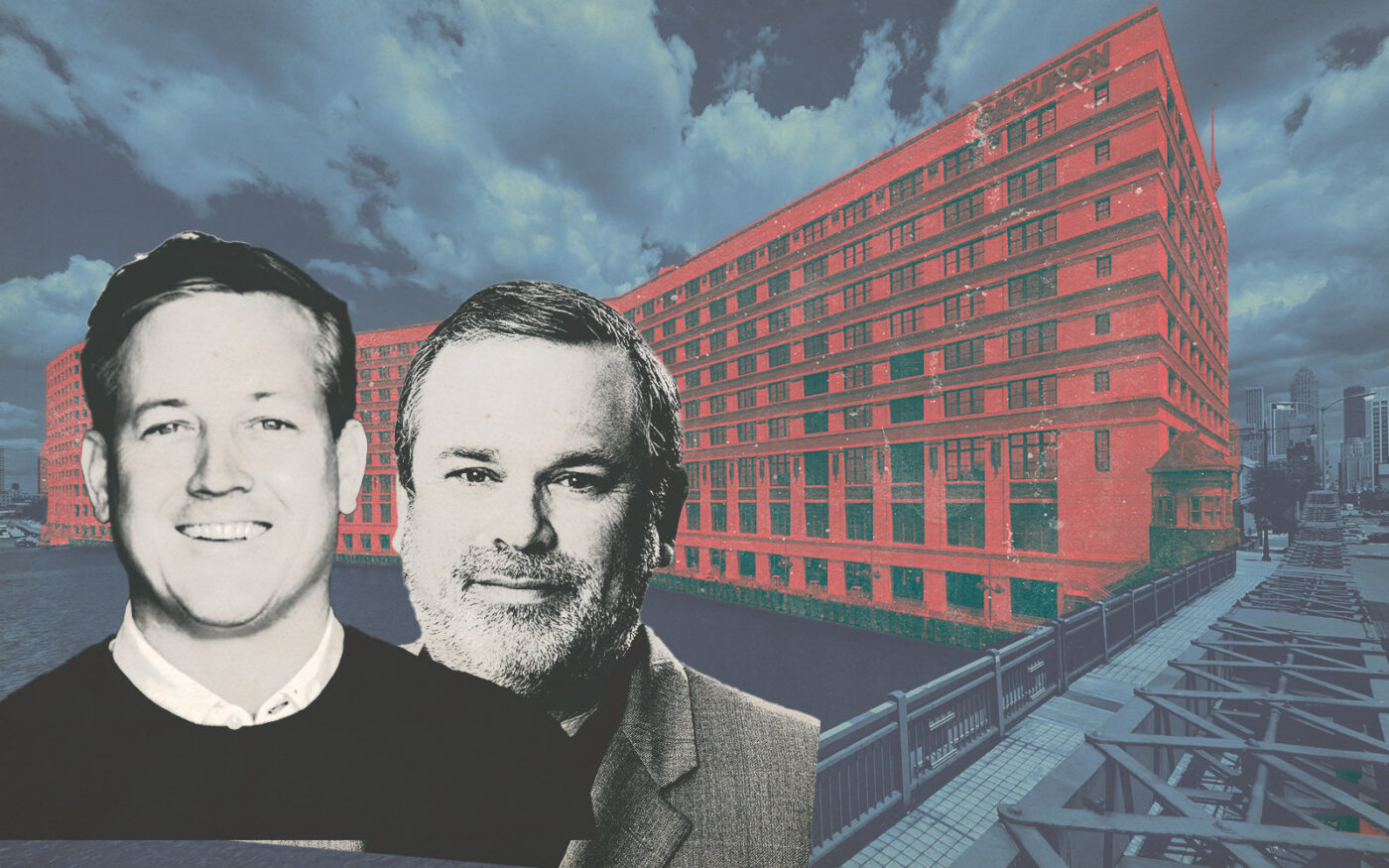
Trending
Judge dings Sterling Bay on retailer’s $515K early post-pandemic exit
Landlord of converted Montgomery Ward warehouse could owe more than $600K based on anemic return to office

Sterling Bay is on the hook for a substantial payout to a former retail tenant of the converted Montgomery Ward warehouse on the Near North Side, with a lackluster return-to-office the apparent culprit in the case.
Cook County Judge Catherine A. Schneider in March ruled for a venture of Lombard-based Quest Food Management, which provided food and beverage services under the Farehouse Market brand in the 1.6 million-square-foot building. The judge’s order means Sterling Bay is obligated to pay the former tenant more than $515,000, and potentially nearly $100,000 in attorney’s fees, as part a lease termination seven years ahead of schedule.
The ruling reflects the plights of both landlords and their ground-floor retailers in major corporate buildings, with many still struggling with low office attendance by employees since the work-from-home surge sparked by the pandemic. Landlords have been forced to make larger concessions to retailers on leases as a hedge against the changing patterns of office attendance.
The new dynamic comes as landlords aim to regain relevance for their properties by gussying up lobbies and adding various amenities — with higher quality food and beverage options often a main selling point.
Quest’s Farehouse Market — which offers services ranging from catering to grab-and-go selections to for office tenants — seemed to tick the upscale food and beverage box for Sterling Bay at 600 West Chicago. The Lombard-based company bills its “fresh, made from scratch food and intensely personal service” in various Midwest markets.
The trend toward concessions apparently led to Quest retaining an option to ditch the space and secure a payment from Sterling Bay in the event its average annual sales volume didn’t reach $2.5 million by the third year of the 10-year lease it signed in 2020, the first year of the pandemic.
“Landlords have been taking aggressive steps and offering creative structures to energize common areas in larger projects,” said veteran Chicago leasing broker Greg Kirsch, who runs an eponymous brokerage. “Given the slow recovery of traffic, landlords should expect strain associated with these unorthodox arrangements.”
In a letter used as an exhibit in the lawsuit, Sterling Bay CEO Andy Gloor wrote that his firm spent more than $4 million to build out the tenant’s space in the building, paid the tenant $430,000 between June 2020 and September 2022, and abated $142,000 in rent it could have collected. Quest claims it had still lost $500,000 by keeping a presence in the building.
Sterling Bay argued that Quest hadn’t reached the third year of its lease and was moving to terminate the deal before it was eligible.
A Sterling Bay representative, meanwhile, said the firm reached a mutual agreement to resolve the matter with Quest, and declined further comment. Quest’s attorney didn’t return a request for comment.
Quest’s legal counsel, Steven Blonder of Much Shelist, is seeking nearly $100,000 in attorney’s fees from Sterling Bay, citing the judge’s order in favor of the retailer.
The ruling in favor of Quest highlights the struggle of 600 West Chicago, a one-time warehouse for catalog sales of Montgomery Ward, a once-mighty presence in the city and nationally. The building was converted to offices and had been home to tech firm Groupon since at least 2011, with a peak of around 300,000 square feet of space.
But the property didn’t bounce back from the pandemic with much verve.
Groupon employees didn’t attend the office as often, with foot traffic generally under 50 percent of pre-Covid levels, Quest’s lawsuit claimed. Groupon last year paid a $9.6 million lease termination fee to get out of 290,000 square feet it had occupied at 600 West Chicago, and also subleased two floors to fellow tech firm Uptake. But Groupon later sued Uptake for $1.5 million in unpaid sublease rent, a dispute that Cook County court records show was settled in March. The terms of the settlement weren’t made public in online court records.
Morgan Stanely provided Sterling Bay a $374 million loan against the property when the developer bought it for $510 million in 2018, while it was almost fully leased.The lender and landlord more recently were reported to have hired Eastdil Secured to explore a sale of the building. At 62 percent leased today, the asset is likely to fetch less than the value of the loan, people familiar with the property have told Chicago’s real estate media.
Read more







